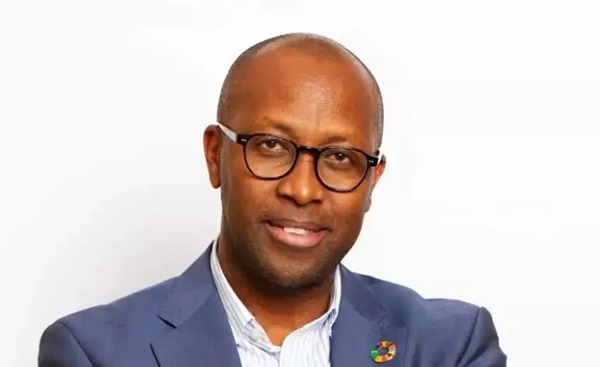
Ahead of the launch of African Vaccine Manufacturing Accelerator (AVMA) and Gavi’s Investment Opportunity for 2026-2030 in Paris, France, on June 20, 2024, a health specialist has wondered why the initiative is being launched in Paris rather than on the African continent.
Group CEO of Amref Health Africa, Dr. Githinji Gitahi questioned this in an interview with Science Nigeria in Abuja. According to Science Nigeria, the Gavi Board approved the Vaccine Alliance’s strategy for the five years, from 2026 to 2030. The African Vaccine Manufacturing Accelerator and Day Zero Financing Facility parameters were also approved, alongside the expansion of Gavi’s portfolio to include tuberculosis, dengue fever, group B streptococcus, hepatitis E and mpox.
The impact of Gavi’s next strategic period and the funding to achieve its objectives will be announced in Paris on June 20 at the “Protecting Our Future: The Global Forum for Vaccine Sovereignty and Innovation,” co-hosted by the African Union, the government of France and Gavi.
Gitahi stated that while France’s co-hosting with the African Union and Gavi was well-intentioned, the decision to hold the launch in Paris represents a significant missed opportunity to localise this vital initiative within Africa. “Africa is striving to enhance its vaccine manufacturing capabilities, and hosting the launch on African soil would be a powerful symbol of the continent’s ownership and leadership in the initiative. It would promote localization and underscore its commitment and proactive stance, resonating globally and sending a clear message that Africa is not merely a beneficiary but a leader in its health future,” he said.
He emphasised the importance of community engagement, stating, “We have to realise that the community is where the power is based. To serve the communities better, we must shift our mindset and give up our power. That is the challenge of localisation: surrendering power makes us feel vulnerable and uncomfortable.”
According to Gitahi, launching the AVMA in Africa would facilitate greater local engagement from stakeholders across the continent, including governments, health officials, manufacturers, scientists, civil society organisations and the private sector. By being more accessible, it would encourage robust discussions and collaborations directly relevant to Africa’s unique challenges and opportunities.
“Such discussions would be driven by stronger local media coverage, raising awareness, generating greater public interest within the continent, and building momentum and public support for the initiative. This would transform the narrative towards African innovation and capability in addressing public health challenges, promoting social accountability and inspiring pride among African communities,” he added.
Additionally, he said that the launch would be an excellent opportunity to further mobilise Africa to support the Africa Medicines Agency (AMA), which plays a pivotal role in creating an enabling environment for vaccine manufacturing by providing regulatory oversight, facilitating capacity-building and fostering collaboration among stakeholders.
“Africa’s vaccine manufacturing capability is rapidly advancing, marked by significant milestones and robust initiatives. South Africa’s Biovac Institute partners with global pharmaceutical companies to produce and distribute vaccines, while the Institut Pasteur in Dakar, Senegal, is renowned for its yellow fever vaccine production. Egypt’s Vacsera is also expanding its facilities to increase vaccine production capacity,” he noted.
Gitahi highlighted that these local initiatives exemplify Africa’s commitment to building a resilient, self-sufficient vaccine supply chain, ensuring better health outcomes and fostering economic growth across the continent. “An African venue for the launch would provide an ideal platform to showcase these existing hubs and potential local manufacturing capacities, building confidence among international partners and investors in Africa’s ability to scale up vaccine production. Highlighting local facilities and innovations would demonstrate that Africa is ready and capable of handling such a critical initiative, fostering a sense of pride and accomplishment,” he explained.
He, however, acknowledged that while logistical and diplomatic considerations may drive the decision to launch the AVMA in Paris, it misses a crucial opportunity to strengthen localisation. “By hosting the launch in Africa, organisers would reinforce the continent’s ownership, facilitate greater local engagement, showcase capacity, and foster trust and collaboration. This alignment with the AVMA’s objectives would ensure its impact is deeply rooted in the context it aims to serve,” he stressed.

